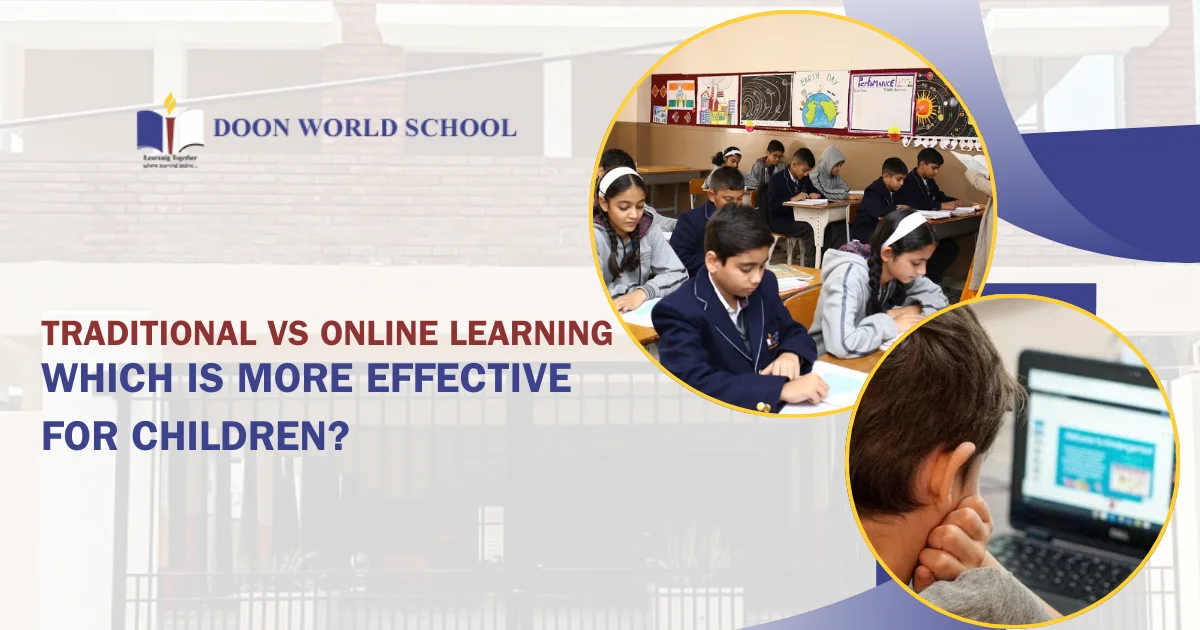
How to make Online Classes Interesting.
There was a time when students used to learn in one classroom together but now as things have shifted online due to the pandemic it’s hard for the students to focus and harder for the teachers to make them focus.
In the present scenario, it is very important to have an interesting module that helps the students learn effectively.
Doon World School is one of the best CBSE schools in Dehradun that provides such a dynamic module to their students which helps them absorb what they have been taught. This is possible only because of the ways that the faculty teach and make the online learning experience worthwhile.
That being said, let’s look at the ways online classes can be made more fun and interesting.
The first and foremost necessity to conduct an effective online class is a good internet connection and a device for both teacher and student. One can make sure that the links provided for zoom class/ google meets should be proper and the teacher must be skilled to resolve any basic technical problem to have a fuss-free session. A clean and distraction-free background is a must to keep the students collected and focused.
Keeping this interaction less boring and holding the attention of students can be a great challenge in an online class especially for kindergarten. To make it more fun the teacher should be very friendly and try to include some fun activities to keep students engaged. At the same time, it’s a responsibility of a student to interact with their teacher and assure them of your attendance.
A teacher can keep the communication in check by:
- Being frank, fun, and kind.
- Having engaging storytelling skills.
- Greeting students.
- Weekly interactive sessions on Google hangouts.
- Regular doubt classes.
- Maintaining a google spreadsheet to check students’ progress.
And a student can be on track by:
- Giving honest feedback to their teachers.
- Reaching out and attending the doubt sessions.
- Most importantly behaving well and being empathetic.
- Taking tests and mocks now and then.
When a student is being taught online over a platform it is very important to make sure that the student can see the text so keeping the sentences small and clear is a must.
– Using presentation is another amazing way of
keeping the students interested in the class as they are short
and effective.
– Putting pictures/videos/other visuals in the slide is always a
smart move.
– To keep the session more fun one can always have short
quizzes and polls or even knowledge-based games.
– Online tests can be more thrilling if put a timer on them.
Provide them with all the resources from where students can access the links for notes etc. For example: zoom links, google drive, google hangouts for a personal chat with the teacher, google docs., google sheets where they can update their progress, and so on.
If the rules and class timings on online platforms are kept just like the way school does then it will help students be disciplined. Surveys show that at most a student can be attentive for like 10-20 minutes maximum in online sessions so keeping the classes short and interactive is beneficial.
Some sort of applause and honor would keep the students motivated because who doesn’t like appreciation, right?
At the same time, some words of praise from the students and their attentiveness towards the meetings would keep the teacher enthusiastic.
Last but not least keep a check on how the students are doing mentally and emotionally is a big part of online education as they can be stressed or anxious in a time like this.
One way to know their mental health status is by:
- Discuss their current state of mind.
- Counseling them accordingly in separate online sessions weekly.
- Asking students about their opinion and learnings from this extraordinary experience.
- Give them moral support.
- Suggest students going for a walk and indulging in some form of exercise every day to shoo away lockdown blues.
These are some effective ways that can be used to make the online learning experience more interesting, fun, and engaging.


